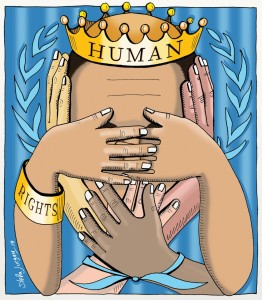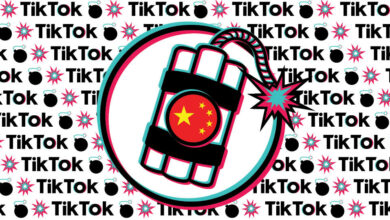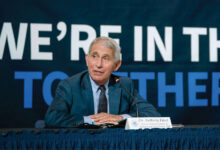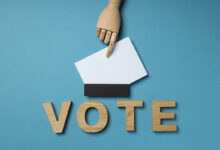The Rights of Humans
The fight for Human Rights has been on-going since the dawn of time without success.
On December 10, 1948 the world adopted the “Universal Declaration of Human Rights” mostly as a result of atrocities committed during Second World War. During World War II, the allies adopted the Four Freedoms – freedom of speech, freedom of religion, freedom from fear and freedom from want and reaffirmed faith in fundamental human rights, and dignity and worth of the human person. Out of 58 members of the United Nations, 48 voted in favour, none against, eight abstained and two did not vote.
Since the document was signed, heinous crimes and abuses have continued in many parts of the world. The new world order is the enemy of Humanity and we are unable to stop the barbarity and wars further contribute to the exploitation of the most vulnerable. When speaking of human rights it is important that clarity in the removal of assumptions and ambiguity from the situations affecting people be precisely defined. Often, we speak of human rights without thinking that these rights encompass many types of abuse including physical and mental exploitation by countries or on a personal level by individuals within the circle of people you know.
The Global fight against mass atrocities continues. Looking at China and the murder of journalist Jamal Khashocagi as examples of the attempts to silence voices which seek freedom in their lives or to expose nefarious behaviours by nations where the value of human life is minimal. Many questions remain since the agreement was signed in Paris. Constant questioning of responsible nations about the allowance of abuses appears to fall on deaf ears because of the fear of political and/or financial repercussions. We live in a world where the disposability of lives is a reality and we don’t care because it’s not in our backyard. Where does individual morality and responsibility reside? As human beings we cry every time a story about abuse is related but it’s soon forgotten in the busy lives of the world. Refugees live in sub human conditions in many accepting countries. Can the world protect the movement of human beings running from abuses? Probably not as the adoption of human rights by the United Nations possibly did not foresee the level of migration being experienced. We can’t change their circumstances, but we must defend their human rights defenders without exception.
We have to question what is the purpose of having rights for humans if they are not practiced or enforced. Recognizing our own rights and questioning if we practice the expectations of the rights of others is a good start to ensure that the balance of each life is recognized.
Those who feel that there is power in abusing weaker or vulnerable human beings should be exposed for what they are – Cowards!

(in Portuguese)
Os direitos humanos
A luta pelos direitos humanos está em curso, desde o início dos tempos, sem sucesso. A 10 de dezembro de 1948, o mundo adotou a “Declaração Universal dos Direitos Humanos” principalmente como resultado de atrocidades cometidas durante a Segunda Guerra Mundial. Durante a Guerra Mundial, os aliados adotaram as Quatro Liberdades – liberdade de expressão, liberdade de religião, liberdade do medo e a liberdade de querer – e reafirmaram a fé nos direitos humanos fundamentais, dignidade e valor da pessoa humana. Dos 58 membros das Nações Unidas, 48 votaram a favor, nenhum contra, oito abstiveram-se e dois não votaram.
Desde que o documento foi assinado, crimes hediondos e abusos continuaram em muitas partes do mundo. A nova ordem mundial é o inimigo da Humanidade e somos incapazes de parar a barbárie e as guerras contribuem ainda mais para a exploração dos mais vulneráveis. Ao falar de direitos humanos, é importante que com clareza se removam as suposições e que a ambiguidade das situações que afetam as pessoas seja definida com precisão
Muitas vezes falamos de direitos humanos sem pensar que esses direitos abrangem muitos tipos de abuso, incluindo a exploração física e mental por países ou, a nível pessoal, por indivíduos que até se encontram no círculo de pessoas que você conhece. A luta global contra atrocidades em massa continua. Basta olharmos para a China e lembrar o assassinato do jornalista Jamal Khashocagi como exemplos das tentativas de silenciar vozes que buscam a liberdade para as suas vidas ou de expor comportamentos nefastos por parte das nações onde o valor da vida humana é mínimo.
Muitas questões permanecem sem resposta desde que o acordo foi assinado em Paris. As constantes perguntas levantadas por nações responsáveis sobre a falta de ação, perante abusos claros dos mais elementares direitos humanos, parecem cair em ouvidos surdos por causa do medo de repercussões políticas e / ou financeiras.
Vivemos num mundo onde a descartabilidade de vidas é uma realidade e não nos importamos porque não está no nosso quintal. Onde reside a moralidade e a responsabilidade individual? Como seres humanos, choramos cada vez que nos relatam uma história sobre abuso de direitos humanos, mas logo a esquecemos nas vidas ocupadas do mundo. Os refugiados vivem em condições sub-humanas em muitos países que os aceitam. Pode o mundo proteger os seres humanos que fogem de uma vida de abusos? Provavelmente não, já que a adoção dos direitos humanos pelas Nações Unidas, possivelmente, não previu o nível da migração a que o mundo está a assistir atualmente. Não podemos mudar as suas circunstâncias, mas devemos defender os defensores de direitos humanos sem exceção.
Temos que questionar com que propósito existem direitos para os seres humanos se eles não são praticados ou aplicados. Reconhecer os nossos próprios direitos e questionar se na prática estamos a corresponder às expectativas dos direitos dos outros é um bom começo para garantir que o equilíbrio de cada vida seja reconhecido. Aqueles que sentem que abusar de seres humanos mais fracos ou vulneráveis é uma forma de exercerem o seu poder, devem ser expostos pelo que são – Covardes!
Manuel DaCosta








Redes Sociais - Comentários